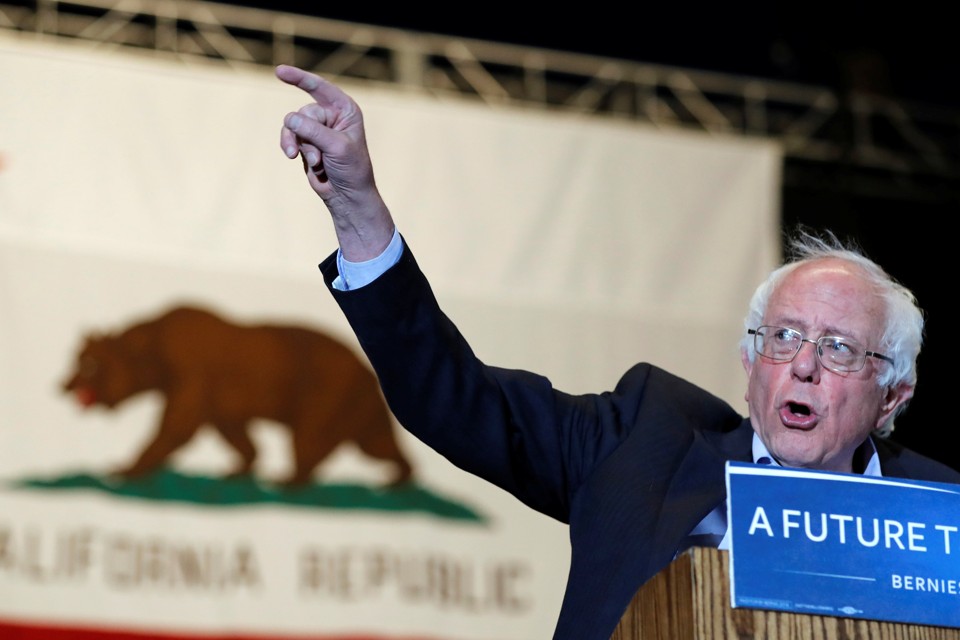Financial Markets and Economy
Oil Pares Biggest Quarterly Gain Since 2009 Amid Rebalancing (Bloomberg)
Oil headed for the biggest quarterly advance in seven years as falling U.S. supply added to speculation the global surplus is easing.

Stocks Steady, Capping Rocky First Half of Year (Wall Street Journal)
Stock markets mostly stabilized Thursday, on track for a subdued end to a tempestuous first half of the year.
China gasoil demand hits near 6-year lows, gasoline reverses trend (Platts)
Apparent demand for oil in China, Asia's biggest oil consumer, headed lower in May as subdued economic activity pulled down gasoil consumption to its lowest level in nearly six years, while gasoline witnessed its first year-on-year decline in consumption since January 2014.
World stocks poised for worst month since January (Reuters)
European stocks and the pound held on to a third day of gains as the immediate market flurry over Britain’s vote to pull out of the European Union settled.
Gold futures dip as dollar gains amid return to ‘riskier’ assets (Market Watch)
Gold futures prices fell and the U.S. dollar mostly gained on Thursday as global markets further stabilized from the volatile trading that followed the U.K. split with the European Union.
Here is proof that economic wealth does not guarantee the best quality of life (Business Insider)
A country having vast economic wealth does not necessarily guarantee a greater quality of life for its citizens, according to data from the latest Social Progress Index (SPI).
 Japan running low on workers as proportion of over-65s hits record levels (The Guardian)
Japan running low on workers as proportion of over-65s hits record levels (The Guardian)
Japan’s closed-door immigration policy is expected to come under scrutiny after census data showed that more than a quarter of its population is over 64, while the number of children aged under 14 is at a record low – trends that have caused alarm over the country’s economic fortunes.
71% of Americans Think the U.S. Economy Is Rigged (Fortune)
Unemployment in America may have hit a forty-year low, but few Americans are taking comfort in numbers. According to a new poll, nearly three-quarters of Americans believe the U.S. economy is rigged.
Oil falls towards $50 on higher supply outlook, economic worries (Reuters)
Oil fell towards $50 a barrel on Thursday, pressured by higher Nigerian output and concern about the economic outlook following Britain's vote to leave the European Union last week.
China to tolerate weaker yuan, wary of trade partners' reaction (Reuters)
China's central bank is willing to let the yuan fall to 6.8 per dollar in 2016 to support the economy, which would mean the currency matching last year's record decline of 4.5 percent, policy sources said.
Central bank pumps more money into market (China Daily)
China's central bank on Thursday continued to pump money into the money market to inject more liquidity.
Soros Says Brexit Has ‘Unleashed’ a Financial-Markets Crisis (Bloomberg)
Britain’s decision to leave the European Union has “unleashed” a crisis in financial markets similar to the global financial crisis of 2007 and 2008, George Soros told the European Parliament in Brussels.
Does China Face A Looming 'Japan Syndrome'? (Forbes)
The Japanese economy has been undertaking an experiment in economic theory for the last couple of years. Stuck in the doldrums since the early 1990s Japan implemented a sizeable fiscal stimulus in 2013, combined with quantitative easing, targeting 2% inflation, to be followed by structural reforms.
Google buys 12-year output from Norwegian wind power farm (Reuters)
Norway's Zephyr and Norsk Vind Energi said the 160-megawatt capacity onshore Tellenes wind power farm south of Stavanger is expected to be fully operational in late 2017, and when built it would become the largest wind power farm in the Nordic country.
Politics
 How Democrats Moved Left on Wall Street (The Atlantic)
How Democrats Moved Left on Wall Street (The Atlantic)
Bernie Sanders and Elizabeth Warren may not end up in the White House, but their efforts to influence the Democratic agenda seem to be paying off. A recently approved draft of the Democratic Party platform strikes a populist tone on Wall Street reform, calling for policy prescriptions championed by the progressive wing of the party. When it comes to the way Democrats talk about Wall Street, what once was fringe has made its way into the mainstream, though that doesn’t mean words will translate into action.
Technology
 Robot eyes and humans fix on different things to decode a scene (New Scientist)
Robot eyes and humans fix on different things to decode a scene (New Scientist)
Machine minds are often described as black boxes, their decision-making processes all but inscrutable. But in the case of machine intelligence, researchers are cracking that black box open and peering inside. What they find is that humans and machines don’t pay attention to the same things when they look at pictures – not at all.
 Google's undersea cable connecting US and Japan is now live (Engadget)
Google's undersea cable connecting US and Japan is now live (Engadget)
The $300 million trans-Pacific undersea cable backed by six companies, including Google, that connects Japan and the US is now online. It connects Oregon with the Chiba and Mie prefectures in Japan with 9,000 km (5,600 miles) of wires. However, those aren't the only places that will benefit from its capacity to deliver speeds that can reach a whopping 60 terabits per second.
Health and Life Sciences
 Text Messaging Creates Unique Brain Waves (Forbes)
Text Messaging Creates Unique Brain Waves (Forbes)
Some people say that technologies like the internet are changing the way we think. This claim is now supported by evidence from neuroscience: a unique pattern of neural oscillations — better known as ‘brain waves’ — appears when people are text messaging.
Life on the Home Planet
 Acidic oceans make it hard for snails to escape predators (Futurity)
Acidic oceans make it hard for snails to escape predators (Futurity)
Ocean acidification makes it harder for sea snails to escape from their sea star predators.
The findings suggest that by disturbing predator-prey interactions, ocean acidification could have ongoing consequences for food web systems in shoreline ecosystems.



